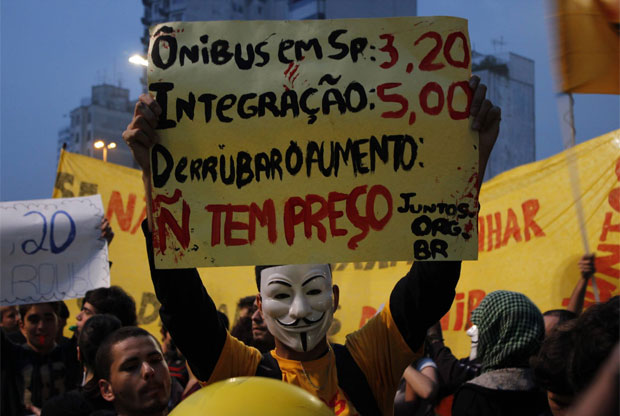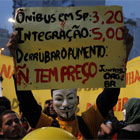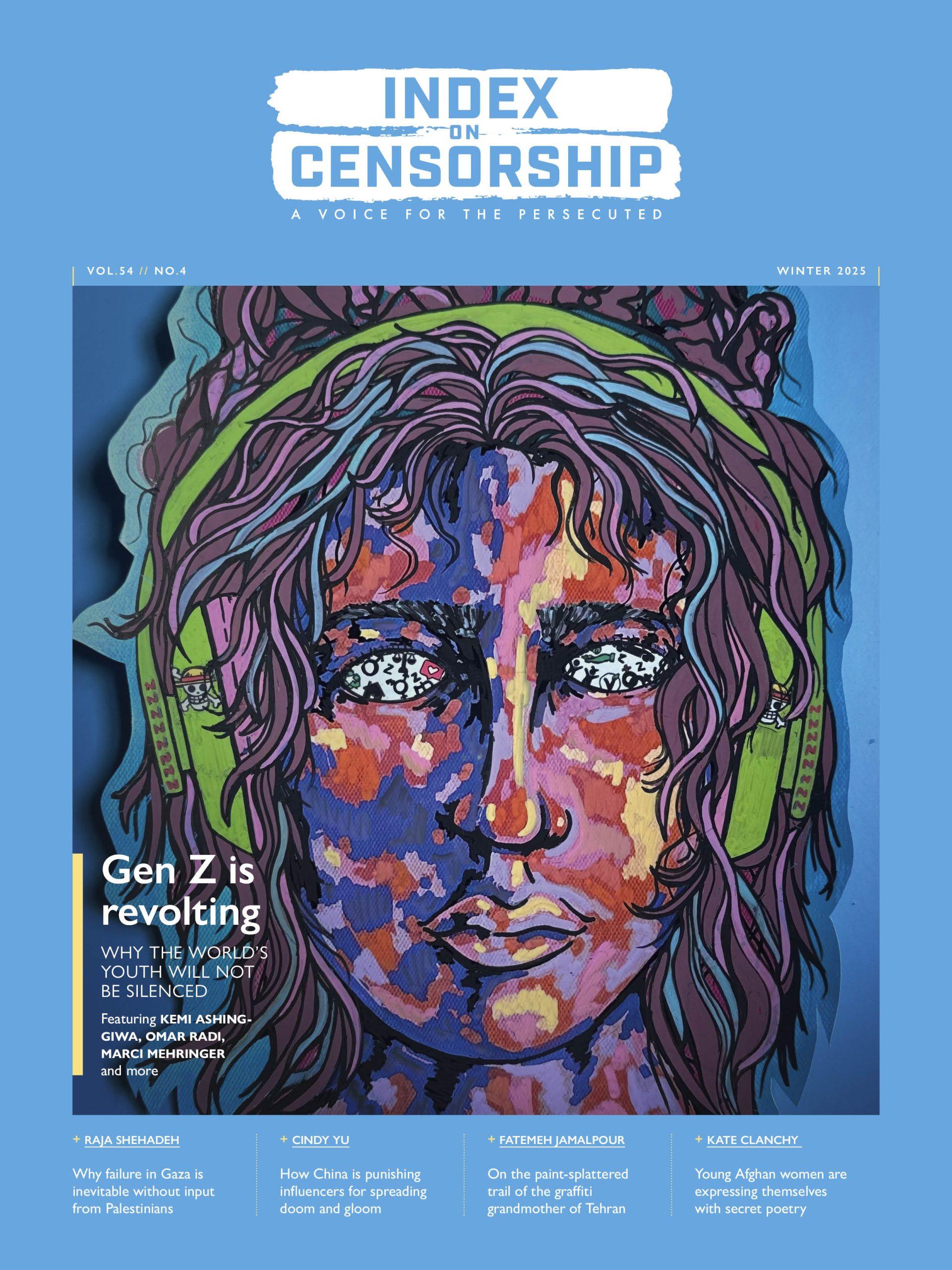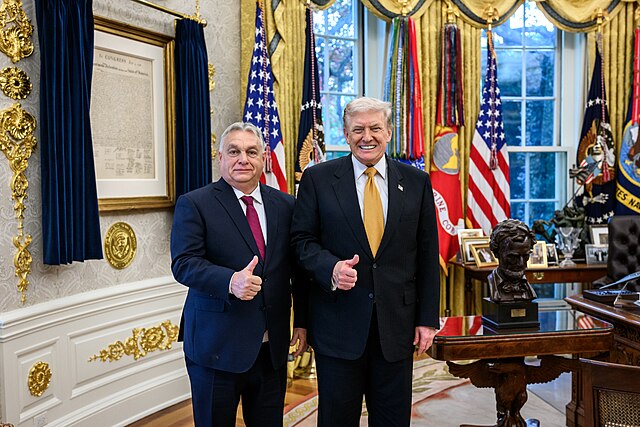In recent weeks Brazil has seen something unusual – large demonstrations on the streets of São Paulo and Rio de Janeiro. Rafael Spuldar reports on the rise in bus fares that is prompting the protests

Photo: Jimmy Trindade via Facebook
So far this month there have been three major demonstrations in São Paulo and two in Rio. The national movement is coordinated by Movimento Passe Livre , or Free Pass Movement, which is comprised of groups linked to student organizations and leftist parties.
Bus fares increased on 1 June in both cities, jumping from 3 BRL ($1.42) to 3,20 BRL ($1.50) in São Paulo and from 2,75 ($1.30) to 2,95 ($1.40) in Rio. That’s a tough sell in Brazil where the monthly minimum wage of 700 BRL means that a low-wage worker in São Paulo could end up spending a third of their income on transportation.
On Tuesday, as many as 12,000 people marched from São Paulo’s Paulista Avenue area – considered to be the financial heart of South America’s richest city – to the city centre and back. Bus stops and subway stations were smashed during the protest. Riot police fired stun grenades and used tear gas against the protesters.
Some of the demonstrators posted photos and videos on social media denouncing police abuse. They were also critical of media reporting about the events, saying they are portrayed merely as vandals.
Twenty people were taken into custody during the demonstrations. One of them was reporter Leandro Machado from Folha de S.Paulo, Brazil’s biggest daily newspaper. Machado says he was taken by the police – along with a photographer – simply for reporting the arrest of a protester.
Journalist Pedro Nogueira from Portal Aprendiz – an education website – was also arrested while reporting on the protest. Nogueira says he was detained and beaten by the police while trying to help two friends, who were also attacked by policemen. A video posted on YouTube allegedly shows the incident.
In Rio, the latest demonstration took place on Monday evening. Riot police used mace and stun grenades against the protestors after they blocked Avenida Brasil, one of Rio’s main avenues. More than 30 people were taken in custody, many of them young. As in São Paulo, demonstrators used social media to post videos denouncing police excesses against participants.
Protests against bus fares, as well as clashes between demonstrators and the police, took place in other Brazilian capitals like Goiânia and Natal. In Goiânia, the fare rise was reversed by a court ruling.
Violent protests are not a common event in Brazil’s biggest urban areas. In recent days, social media users seem to be divided between supporters and those who denounce the protesters as vandals who damage public property and disrupt traffic.
The latest demonstrations follow successful movements that sought to roll back fare increases in late March in Porto Alegre – capital of southern state of Rio Grande do Sul. There the mayor revoked the rise.
At this week’s protests, demonstrators could be heard chanting “vamos repetir Porto Alegre” (“let’s repeat Porto Alegre”) in São Paulo and Rio.
Rafael Spuldar is a São Paulo-based writer and editor. Follow him on Twitter @spuldar





